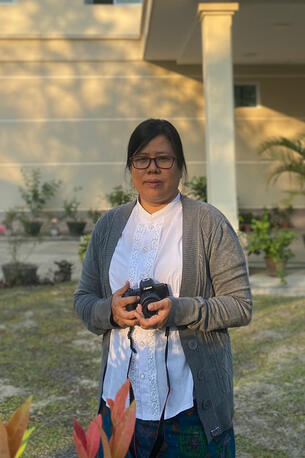Thida Swe is defending her dissertation for the degree philosophiae doctor (PhD) at the University of South-Eastern Norway.

The doctoral work has been carried out at the Faculty of Technology, Natural Sciences and Maritime Sciences at campus Bø.
You are welcome to follow the trial lecture and the public defence.
Summary
Similar to other countries around the world, Myanmar's freshwater systems are increasingly subjected to water quality degradation and eutrophication, and anthropogenic impacts. Dense blooms of noxious, foul-smelling phytoplankton dominated by cyanobacteria, increasing organic loading and sedimentation, fish mortalities, reduction of water clarity and degraded water quality and quantity are the most common symptoms of eutrophication in Lakes and reservoirs. Many cyanobacterial species are known to produce toxic compounds, cyanotoxins, which can affect terrestrial and aquatic organisms. However, no detailed study of the presence of cyanobacteria and their potential toxin production in the water bodies of Myanmar has been conducted so far.
This thesis confirms the occurrence of cylindrospermopsin (CYN) and deoxy-cylindrospermopsin (deoxy-CYN) producing Raphidiopsis raciborskii and microcystin (MC)-producing Microcystis in the cyanobacterial communities of the investigated lakes and reservoirs in Myanmar. LC-MS (LC-HRMS/MS) analysis on the MC producing strains revealed 22 to 56 MC congeners with highly toxic variants like MC-LR or MC-LA to less toxic variants like MC-RR and many new previously unidentified or unreported variants. The control of cyanobacteria is therefore vital for the management of freshwater resources.
The investigated lakes in Myanmar vary considerably in the occurrence and abundance of aquatic macrophytes. The PhD study also fills knowledge gaps on the current distributions and ecology of Chara species in lakes and reservoirs in Myanmar, a subject that has not been addressed since the 1930s.
This study suggests that submerged macrophytes play an important role for the water quality and clear water conditions in a tropical shallow lake. Maintaining a high macrophyte population should therefore be a goal of lake management strategies. Based on the findings in this the study, it is highly recommended to include macrophytes and phytoplankton in the lake monitoring in Myanmar.
